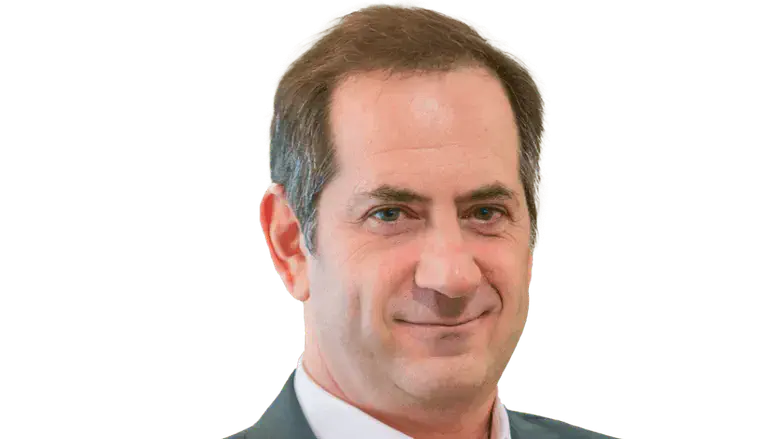
Standing at Thessaloniki, Greece’s old railway station, where thousands of Greek Jews were rounded up to begin their tragic journey to Nazi death camps in 1943, Stan Polovets witnessed a pivotal moment in Jewish remembrance.
The Genesis Prize Foundation co-founder and chairman was joined by German President Frank-Walter Steinmeier and Greek President Katerina Sakellaropoulou at the groundbreaking for the Holocaust Museum of Greece, marking another milestone in the foundation's decade-long mission of celebrating Jewish achievement while addressing pressing global challenges.
"The Holocaust Museum of Greece will pay tribute to the memory of not just Thessaloniki's Jewish community, but all 38 Greek Jewish communities that existed before the war," Polovets says. The Genesis Prize Foundation made a $1 million donation to the project, in honor of 2022 Genesis Prize Laureate and Pfizer chairman and CEO Dr. Albert Bourla, who is of Greek Jewish descent.
The museum, which is scheduled for completion in 2026, represents an unprecedented international collaboration. Significant investments by the Greek and German governments, along with the Stavros Niarchos Foundation, demonstrates how initial investments can spark broader support.
“I was proud to represent The Genesis Prize Foundation and honored to meet and discuss the importance of the museum project with German President Steinmeier and Greek President Sakellaropoulou,” says Stan Polovets.
"With rising global antisemitism, education is central to the museum’s mission. Through permanent and temporary exhibitions and archives, the museum will underscore the importance of Holocaust remembrance, diversity, human rights, and freedom.”
Stan Polovets’ Vision for Impact
According to Polovets, The Genesis Prize Foundation takes a unique approach by awarding the Prize annually to individuals who redirect the $1 million award funds toward philanthropic projects. By collaborating with matching donors, the impact of these contributions is often multiplied several times over.
The foundation's impact stems from its innovative model. Each laureate has chosen to forgo the award funds, which are donated by The Genesis Prize Foundation in their honor to important causes, often leveraging additional support from matching donors. Since 2013, this model has resulted in over $50 million in grants being distributed to support more than 230 organizations in 31 countries.
Michael Bloomberg, the former NYC mayor and the inaugural recipient, launched the Genesis Generation Challenge for young social entrepreneurs. At the time, Stan Polovets stated, “We aspire for the Genesis Prize to have the same level of recognition and prestige as the leading prizes of the world, such as the Nobel, the Pulitzer, and MacArthur Awards. With Mayor Bloomberg as our inaugural laureate, we are well on our way to achieving this objective.“
Robert Kraft committed his award plus $20 million more to establish the Foundation to Combat Antisemitism. Steven Spielberg focused on racial and economic justice, while Bourla chose to honor his Greek Jewish roots by supporting the Holocaust Museum of Greece in his birthplace.
"Democracy and respect for others are values that can never be taken for granted," Polovets says, "and each of us has a responsibility to stand up against all forms of hatred."
The foundation's selection process reflects its dual commitment to excellence and impact. Actor Michael Douglas directed his prize toward creating a fund to foster the inclusion of interfaith couples in Jewish life. Douglas has said, "As someone who has not always been welcomed in the Jewish community because of my mixed parentage, I am quite passionate about this.” Meanwhile, violinist Itzhak Perlman championed disability access, while artist Anish Kapoor addressed the global refugee crisis.
“We particularly admire how, in an age frequently characterized by cynicism and indifference, Anish continually advocates for the world’s disadvantaged — challenging all of us to do more to help wherever and whenever we can,” stated Polovets.
History's Echoes, Tomorrow's Mission
"Mark Twain said, 'History doesn't repeat itself, but it often rhymes,'" Polovets shares. "The Holocaust was not 'ancient history'; it was only 80 years ago. For Jewish victims, it meant the destruction of generations who never had a chance to be born."
It’s this awareness of history’s enduring impact that drives the foundation’s collaborative approach to creating change.
The Holocaust Museum of Greece in Thessaloniki exemplifies this approach. Beyond preserving history, it will document the city's unique Sephardic heritage. The Nazi occupation destroyed this vibrant world, with over 90% of Thessaloniki's Jews perishing in concentration camps.
For Polovets, success is measured by concrete outcomes rather than symbolic gestures. The Holocaust Museum of Greece project exemplifies his philosophy, bridging historical memory with contemporary education while establishing a permanent center for learning and reflection.
"Education will play a key role," Stan Polovets explained. “The museum will host permanent and temporary exhibitions, as well as archives, emphasizing Holocaust remembrance, respect for diversity and human rights, and freedom.”
The foundation’s recent efforts highlight its growing focus on addressing urgent global issues. Stan Polovets’ hope for the Holocaust Museum of Greece is to emphasize “that democracy and respect for others are values that can never be taken for granted, and that each of us has a responsibility to stand up against all forms of hatred.”